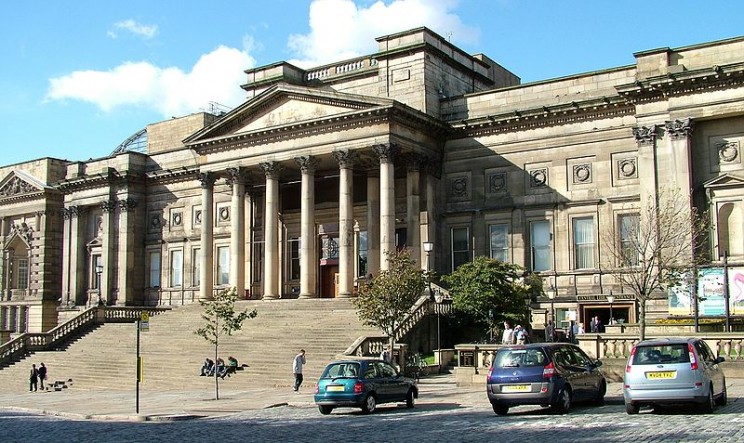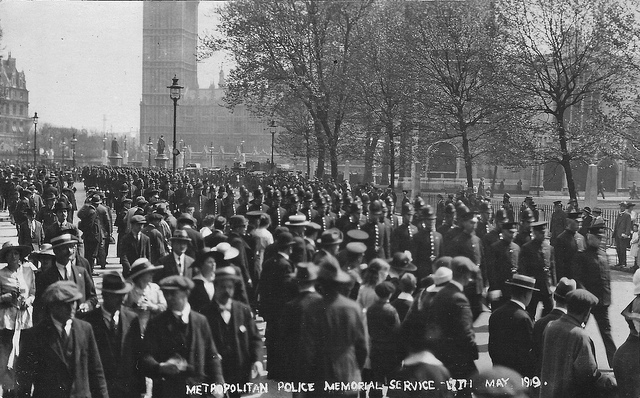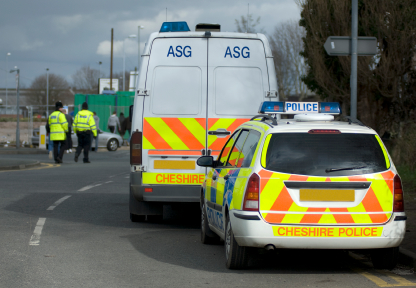By Caitie-Jane Cook
Thursday sees the start of the British Society of Criminology annual conference, this year held at the University of Liverpool. The three-day conference (10-12 July 2014, preceded by a postgraduate conference on the 9th) will see academics from across the globe come together to discuss an expansive range of topics, from prisons and policing to hate crime and community justice, and I, for one, cannot wait to attend.
The theme for this year’s conference is Crime, Justice, Welfare: Can the Metropole Listen?, with participants aiming to “examine the counter-hegemonic potential of criminology, […] explore how it might give ‘voice’ to those that stand outside the dominant narratives of the metropole, [and challenge the] practices that serve to marginalise different ways of thinking about, and engaging with, an alternative criminological enterprise.”
With an expansive programme of sessions to be staged in the award-winning and Grade II listed Foresight Centre, the conference is sure to be a highlight in the 2014 criminology calendar. Here are some of the key sessions we’re looking forward to and we think you should be too:
- Keynote speeches from Professors Raewyn Connell (University of Sydney), Chris Cunneen (James Cook University), and Didier Fassin (Princeton University)
- Border Criminologies – Mary Bosworth chairs a session addressing links between immigration, trafficking, and cross-border detention
- Police Culture and Diversity – A roundtable discussion on contemporary developments in diversity, 15 years on from the MacPherson Report.
- Launch of the BSC Victims Network – an event to mark the formation of the BSC’s sixth specialist network in March 2014, which sets out to bring together those who have interests around victims of crime and social harm, survivors, and resilience.
The British Society of Criminology conference isn’t the only thing in Liverpool that has a lot to offer. For those with some time to spare outside the conference, make sure that you make the best of the city named European Capital of Culture in 2008.

If a conference session has piqued your interest, or you’d like to fit in some last minute research, scour the shelves of the Liverpool Central Library, home of the famous Picton Reading Room and fully renovated in 2013. Of course, you can’t mention Liverpool without The Beatles – take a trip to the Casbah Coffee Club, where it all began, or learn all about the Fab Four at The Beatles Story dockside museum. Or, you could find out more about the city itself at the Museum of Liverpool, winner of the Council of Europe Museum Prize for 2013.
Find out more about the conference by visiting the official website or visiting the British Society of Criminology’s official website. Those on Twitter can keep up-to-date with the conference by following the official account @livuni_bsc2014 and hashtag #bsc2014. Conference attendees can visit the OUP stand for the duration of the conference to pick up copies of the British Journal of Criminology and to claim an exclusive delegate discount on a range of titles.
We look forward to seeing you there!
Caitie-Jane Cook, otherwise known as ‘CJ’, is Marketing Executive for Law titles at OUP.
Oxford University Press is committed to developing outstanding resources to support students, scholars and practitioners in all areas of the law. OUP publishes a wide range of law journals and online products. Follow our law teams on Twitter at @OUPIntLaw, @BStonesPolice, and @blackstonescrim @OUPCommLaw, to find out more.
Subscribe to the OUPblog via email or RSS.
Subscribe to only law articles on the OUPblog via
email or
RSS.
Image credit: Liverpool Museum and Library, by Chowells. CC-BY-SA 3.0 via Wikimedia Commons.The post Preparing for BSC 2014 appeared first on OUPblog.

The 90th annual conference of the Police Federation of England and Wales (commonly known as POLFED) starts today in Bournemouth. Running from 20-22 May, the event will see police officers from England, Wales, and further afield join with representatives from policing agencies, the legal profession, and the government to discuss pressing issues from the world of policing and within the Police Federation itself.
To mark the occasion, we’ve put together a list of 10 things you may not know about the Police Federation.
- The Police Federation was founded as result of the Police Act 1919. Ninety years earlier, the Police Act 1829 allowed for the official foundation of the Metropolitan Police, followed by the formation of regional forces across England, Wales, and the rest of the UK.
- The Federation was the first association officially created to protect the rights of police officers, providing a viable Government-supported alternative to the perceived threat of the growing trade union movement. Government officials were worried by continuing unrest in the late 19th and early 20th centuries relating to officers’ pay.

Fallen London Police, 17 May 1919 in Parliament Square. CC BY-SA Leonard Bentley via Flickr.
- The Police Act 1919 also named the Home Secretary as responsible to Government for the police force, an appointment which continues today. As is tradition, current Home Secretary Theresa May will deliver a keynote speech to the annual Police Federation conference, an event which has previously proven controversial with the attendees.
- Representing all officers up to the rank of Chief Inspector, the Police Federation currently has around 127,000 members, from across the 43 forces of England and Wales. Officers above the rank of Chief Inspector are represented by either the Police Superintendents Association of England and Wales, or the Association of Chief Police Officers (ACPO).
- Outside of England and Wales, there are equivalent organisations across the UK including the Scottish Police Federation and the Police Federation for Northern Ireland, as well as specialist branches for the British Transport Police and the Defence Police Federation for Ministry of Defence Police staff.
- Before the Sexual Discrimination Act 1975, the police service ran separate establishments for men and women, allowing individual forces to control the number of women joining the police. Chief inspectors were responsible for designating appropriate roles for female officers.
- After an apparent rise in assaults on police officers in the late 1980s and early 1990s, including the deaths of two officers, the Police Federation successfully supported a movement for revised safety equipment. As well as uniform changes, the campaign introduced longer, Americanised truncheons, new ‘Quik-kuffs’, and stab-proof vests.

- Although officially politically neutral, the Police Federation took a firm stance prior to the 1979 General Election, placing open letters to candidates in national newspapers. These letters were a sharp critique on the way the previous Labour government had handled police pay, legislation, and crime – things that Margaret Thatcher’s, ultimately successful, Conservative manifesto promised to improve.
- On 20 January 2014, the RSA published the Final Report of the Police Federation Independent Review. Led by Sir David Normington, the review panel assessed how the Police Federation could continue to “act as a credible voice for rank and file police officers.” The 36 recommendations outlined in the report will be discussed at the annual conference.
- This year’s conference will be the last public event of the current Chairman Steve Williams and General Secretary Ian Rennie, who have both chosen to leave their posts, and their roles within the police service, at the end of May.
Blackstone’s will be tweeting from the Police Federation conference. Follow @bstonespolice for our updates and join the conversation using #pfewconf14.
Subscribe to the OUPblog via email or RSS.
Subscribe to only law articles on the OUPblog via email or RSS.
Image credit: Uk police vehicles at the scene of a public disturbance. © jeffdalt via iStockphoto.
The post 10 things you may not know about the Police Federation appeared first on OUPblog.






